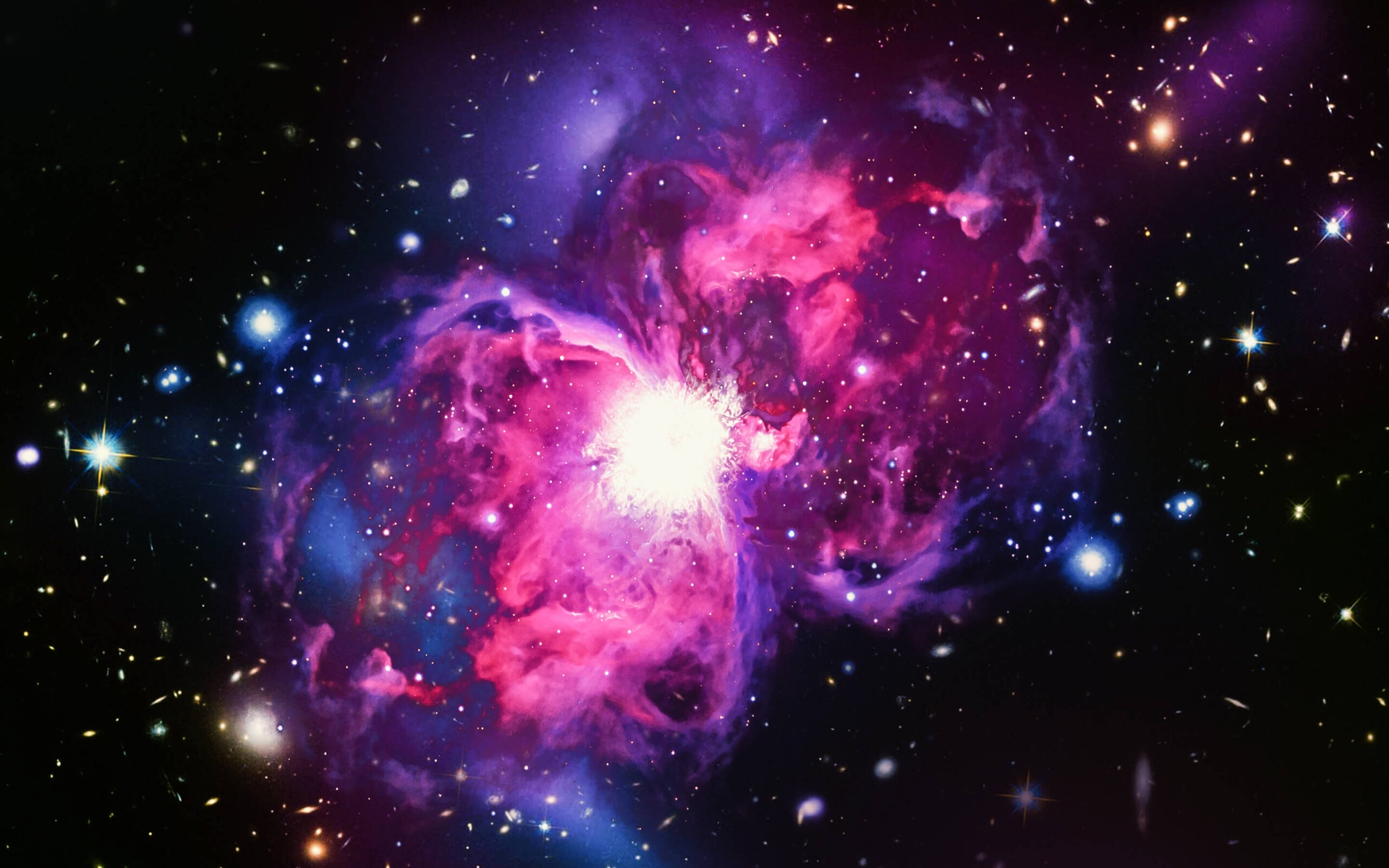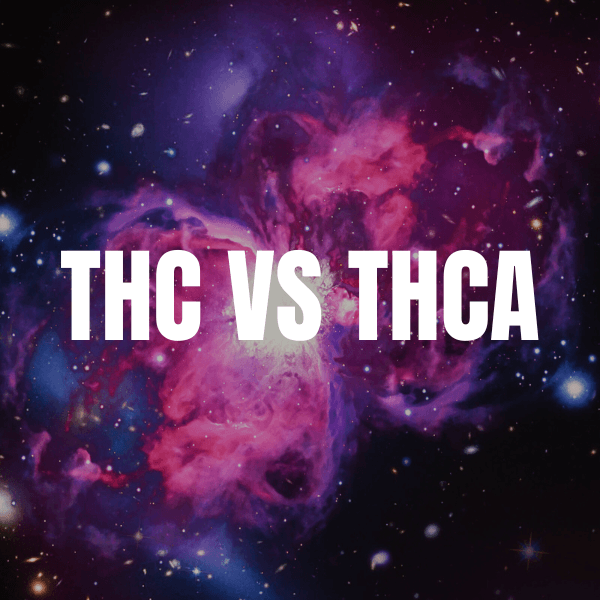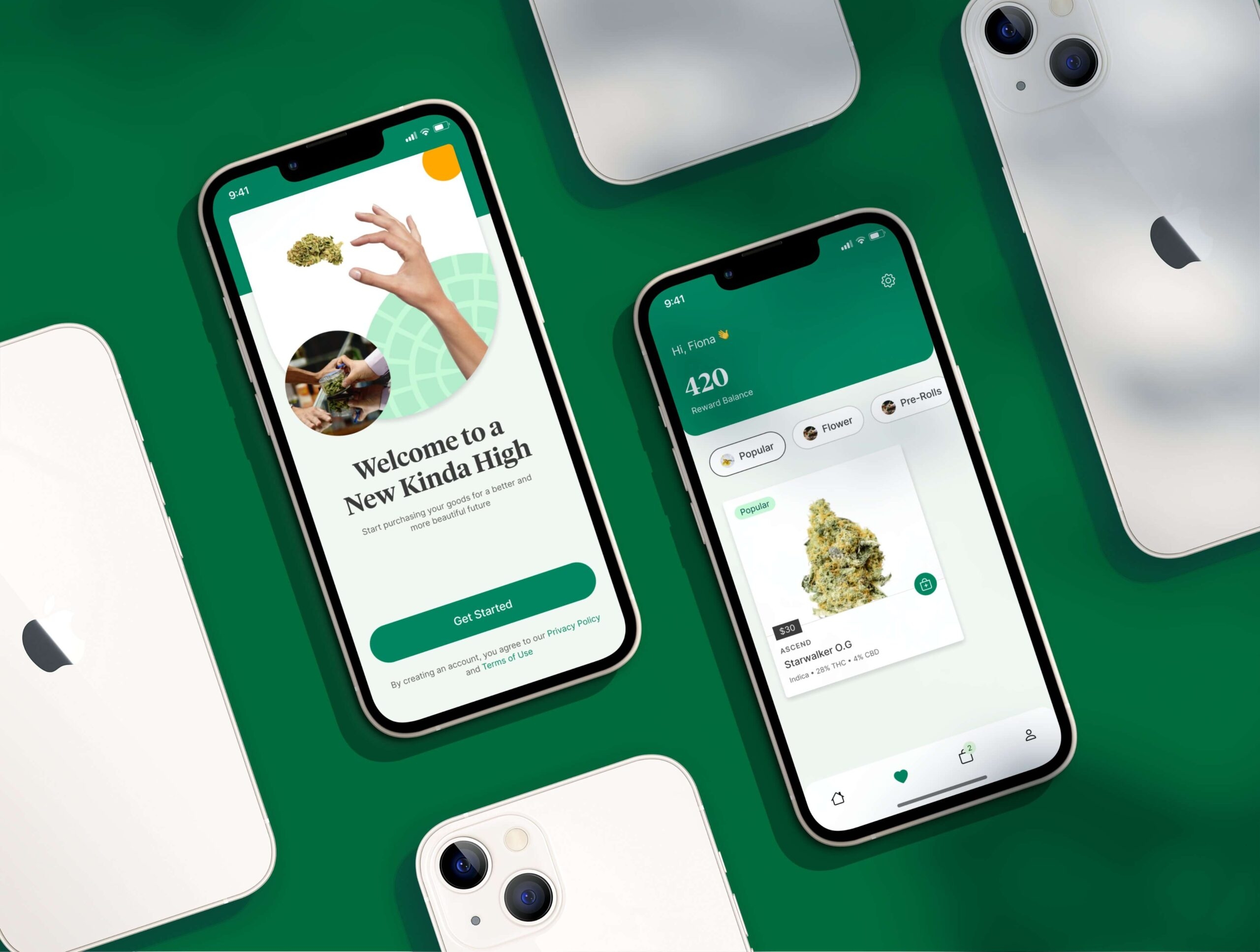
THC vs. THCA: What’s the Real Difference in Your High?
July 07, 2025
Introduction
If you’ve ever looked closely at a lab label or dispensary menu, you’ve probably seen both THC and THCA listed, and maybe wondered why they’re different or what it actually means for your experience. Don’t worry, you’re not alone. At Galaxy Dispensary, we’re all about helping you make informed choices, whether you’re chasing flavor, effects, or potency. So let’s break it down in a way that makes sense, no chemistry degree required.
What Is THC?
THC stands for tetrahydrocannabinol, and it’s the main psychoactive compound in cannabis. It’s the part that gives you the “high”; the euphoria, giggles, munchies, and everything in between. When you smoke, vape, or dab cannabis, the heat converts THCA into THC. Once THC enters your bloodstream, it binds to cannabinoid receptors in your brain and body (mostly CB1 receptors), which kicks off the effects you’re used to feeling, whether that’s a deep body high, a mental uplift, or that all-too-familiar couch lock.
What Is THCA?
THCA is short for tetrahydrocannabinolic acid; basically, it’s THC before it’s activated. Think of THCA as THC’s raw form. It’s what’s naturally present in the living cannabis plant. Here’s the key difference, THCA is not psychoactive. You could technically eat raw cannabis flower (not that we recommend it) and you wouldn’t get high, because the THCA hasn’t turned into THC yet.
So…Why Does THCA Matter?
Just because THCA doesn’t get you high doesn’t mean it’s not important. In fact, THCA is the starting point for all THC potency. When you look at flower lab results, you’ll often see high THCA percentages, like 25%, 30%, sometimes even more and very little THC. That’s because the THC only forms after the product is heated. Once you spark that joint or take a dab, decarboxylation happens (that’s the fancy term for the heat process), and THCA turns into THC. So, when you’re shopping for flower, you can safely assume that most of that THCA content is going to convert to THC when you consume it.
Quick Recap:
| Term | Psychoactive? | Where It’s Found | How It Works |
|---|---|---|---|
| THCA | ❌ No | Raw cannabis (flower, live rosin, etc.) | Converts to THC when heated |
| THC | ✅ Yes | After heating (smoke, vape, edibles) | Binds to receptors to produce a high |
Why Some Products Show High THCA Instead of THC
If you’re buying flower, live rosin, or diamonds, you’ll usually see THCA listed on the label, not THC. That’s because these products haven’t been heated yet. On the other hand, if you’re buying an edible, vape cart, or tincture that’s already been activated, you’ll see THC listed more prominently because the conversion has already happened during manufacturing.
What About Edibles and THCA?
Here’s a common myth: “Edibles with high THCA will get me more lifted.”
Not exactly.
To feel the effects from edibles, THCA must first be converted into THC usually through a decarboxylation step during cooking or processing. So unless you’re juicing raw cannabis leaves (a niche wellness trend), THCA isn’t going to contribute much to the experience unless it’s been activated.
Does THCA Have Benefits Without the High?
While we can’t make medical claims, some people in the wellness space are exploring THCA for its potential non-psychoactive properties. Because it doesn’t cause intoxication, some consumers are turning to raw cannabis juice or cold-pressed THCA products as part of a holistic routine. That said, for the average consumer looking to feel the effects THCA is just the first step on the journey to THC.
So Which One Should You Look For?
It depends on what you’re buying.
-
Shopping for flower or concentrates? Focus on the THCA percentage. That’s your best indicator of how strong the product will be after smoking or dabbing.
-
Shopping for edibles, tinctures, or pre-activated products? Look for THC on the label. That’s what you’ll actually be consuming.
If you’re comparing two flower jars and one says 30% THCA and the other says 25%, you can safely assume the 30% THCA will give you a stronger high assuming the terpene profiles are similar. Pro tip: terpenes matter too, but that’s another blog.
Closing Thoughts: Read Labels Like a Pro
At Galaxy Dispensary, we want to make cannabis easier to understand not more complicated. Knowing the difference between THC and THCA helps you read labels like a pro, choose products that match your vibe, and get more out of every sesh. So next time you stop in, don’t hesitate to ask your budtender for help breaking down the label or finding a strain that’s rich in THCA and terpenes that match your mood.
Explore our full menu of lab-tested flower, concentrates, and infused products by shopping online or stop by Galaxy Dispensary and talk shop with our team. We’re here to elevate your experience.
Shop Online, Pick up
in store today
